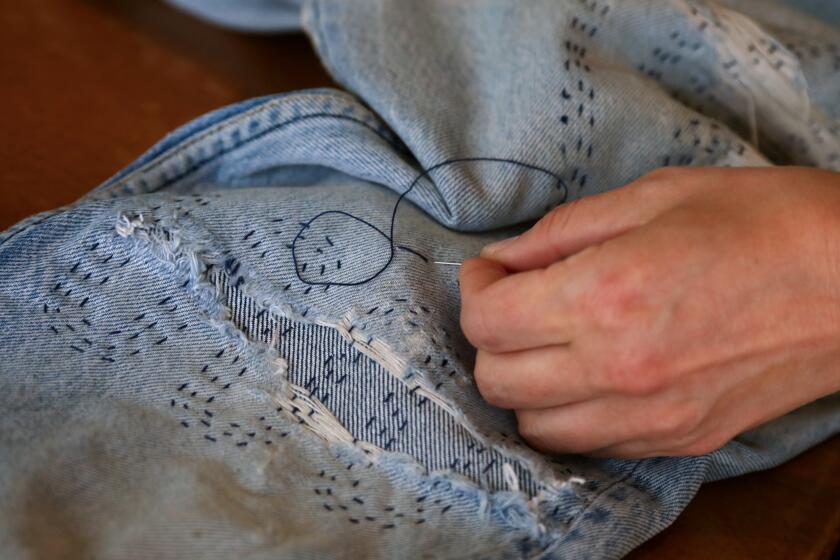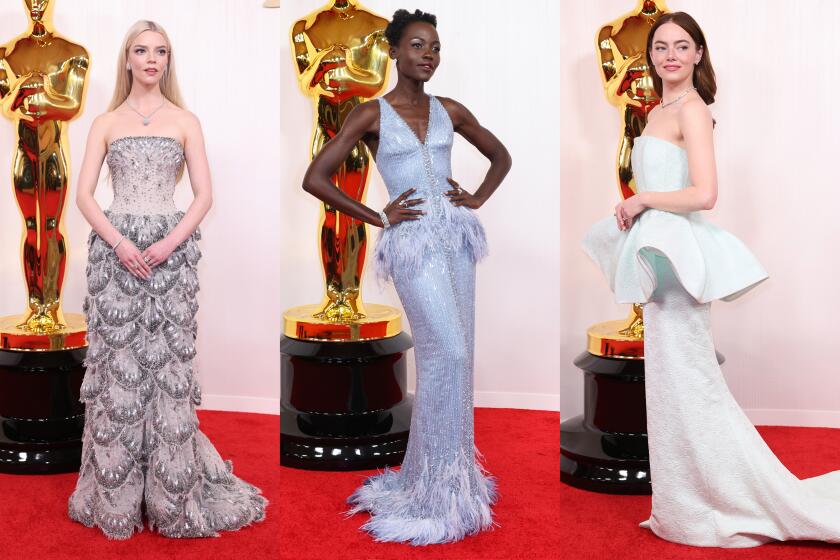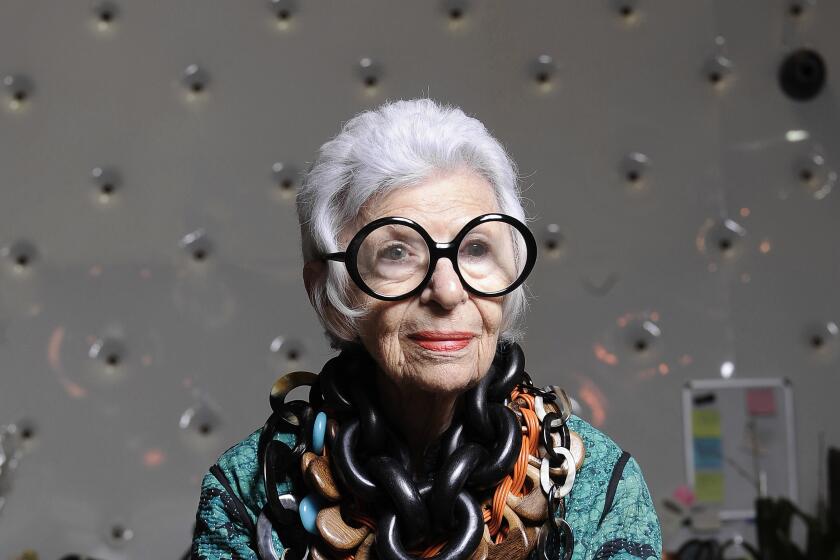High Court to Decide Victoria-Victor Battle
Victoria’s Secret, the glossy retailer of lingerie, took on the owner of a Kentucky strip mall store named Victor’s Secret in the Supreme Court on Tuesday in a legal battle that could determine the value accorded to world-famous brand names.
“If ‘Rolls-Royce’ were put on 100 different products, it would no longer stand for anything special,” said Washington attorney Walter Dellinger, who represents Victoria’s Secret.
The trademark name “signals something to the consumer, a certain quality and distinctiveness,” he said.
Victoria’s Secret says it ranks in the top 10 of famous brands in the apparel industry, along with names such as Nike, Levi’s and Rolex. The retailer has 750 stores nationwide and mails out 400 million catalogs a year.
But its lawyers have not been too busy to ignore the tiny strip mall store in Elizabethtown, Ky., owned by Victor Moseley and his wife, Cathy. “We sell everything for romantic encounters,” Moseley said in an interview. “Lava lights, candles, leather products and lingerie. And we have a small section for adults only.”
When he opened his store five years ago, Moseley said he wanted it to be a secret from his family and friends. So he called it Victor’s Secret.
The giant retailer did not welcome the association, however.
Its lawyers sued the Moseleys under the Trademark Dilution Act of 1996 to force them to change the name of their store.
In the past, the trademark laws made it illegal to copy a famous name or symbol to sell a competing product.
The anti-dilution law goes further by barring the use of similar names or symbols that blur or tarnish the famous brand.
“If I were to make a Kodak chair, the theory is that I would be lessening the uniqueness of the famous brand and blurring its distinct image,” said professor David S. Welkowitz, an expert in trademark law at Whittier Law School in Costa Mesa.
But judges have been divided on what is “dilution” of a trademark.
In one famous case, the owners of Ringling Bros. and Barnum & Bailey Circus sued the Utah tourism agency for adopting the slogan “Greatest Snow on Earth.”
However, Ringling Bros. lost because it had no evidence that Utah’s claims to have the greatest snow hurt the circus and its claim to offer the Greatest Show on Earth.
The case of Victoria’s Secret versus Victor’s Secret marked the first time the issue had come before the Supreme Court. And the justices sounded both intrigued and perplexed during Tuesday’s oral argument.
Suppose a small-town store puts out a product called “Budweiser bug spray”? asked Justice Stephen Breyer. On the one hand, no one would be confused because one product is bug spray, not beer, he said.
On the other hand, the brewer would not be happy with the association. “They are going to think [consumers] might think ‘Budweiser’ -- Yuck! And they don’t want that,” he said in a comment directed at Victor Moseley’s lawyer.
The bug spray probably would not violate the law, said James R. Higgins, a lawyer from Louisville, Ky.
The key issue is the “selling power of the famous brand,” he said. “How does that little product hurt the selling power of the famous brand?” he asked.
Higgins argued that his client should be free to use “his name on his own store” because it does not hurt the sales or the image of Victoria’s Secret.
The “mere mental association” between one famous company and an upstart with a similar name is not enough to trigger the law, he maintained.
But the lawyer for the giant retailer said the law was supposed to prevent upstarts from chipping away at a famous brand.
The name Tiffany is known as that of the famous jeweler, Dellinger said.
“But if you have a Tiffany’s restaurant and a Tiffany’s pet store and Tiffany’s shoe store, the name Tiffany wouldn’t stand for the same thing anymore,” he said.







